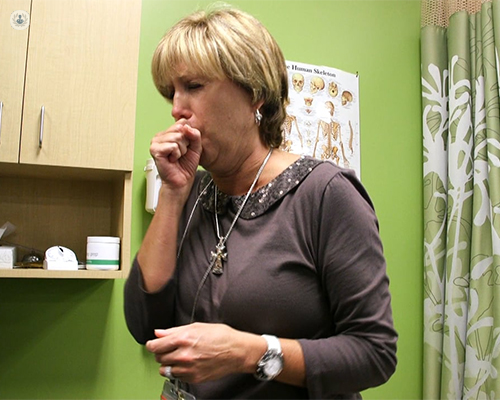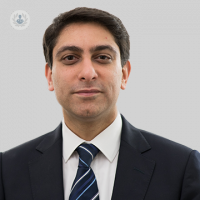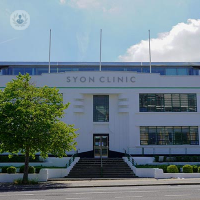Respiratory diseases
Dr Neal Navani - Pulmonology & respiratory medicine
Created on: 11-13-2012
Updated on: 10-16-2023
Edited by: Conor Dunworth
What are respiratory diseases?
Before we define respiratory diseases we must look at the respiratory system. The respiratory system plays an essential role in supplying the body with oxygen. In turn, it removes carbon dioxide residues and toxins, it also regulates temperature and stabilizes blood.
Chronic respiratory diseases (CKD) are chronic diseases that affect the lung and / or the airways. Some of them are asthma, chronic obstructive pulmonary disease (COPD), allergic rhinitis, lung diseases of occupational origin and pulmonary hypertension.
Respiratory diseases affect the lungs directly and can arise from pulmonary, cardiovascular, emotional and otherserious causes that can be fatal. The World Health Organization (WHO) estimates that 235 million suffer from asthma and 64 million suffer from COPD. The same organisation mentions that annually around 4 million people die from CKD worldwide, where as COPD is the leading cause of death when it comes to respiratory diseases.
In short, a respiratory disease or disorder is considered any conditionthat affects the respiratory system. Below is an extensive list:
- Asthma
- Asbestosis
- Black lung bronchiolitis
- Bronchitis
- Chronic obstructive pulmonary disease
- Emphysema
- Empyema
- Eosinophilic pneumonia
- Larynx cancer
- Laryngomalacia
- Legionnaires' disease
- Lung cancer
- Common cold
- Tuberculosis
- Valley fever
- Influenza
- Sinusitis
- Pharyngitis
- Lymphangioleiomyomatosis
- Persistent cough
- Pleurisy Pneumonia
- Pneumothorax
- Pulmonary embolism
- Pulmonary fibrosis
- Respiratory distress syndrome
- Respiratory syncytial virus
- Sarcoidosis
- Severe acute respiratory syndrome
- Silicosis and tonsillitis
Prognosis of respiratory diseases
The prognosis of respiratory diseases can vary greatly depending on the specific pathology. In any case, the prognosis usually improves in most of them if the patient undergoes adeawuate treatment. This works for both more serious and minor respiratory problems. Some of the symptoms of respiratory diseases are cough, wheezing or chest pain, among many others.

Symptoms of respiratory diseases
The symptoms vary according to the person and according to the pathology. However, the most frequent symptoms are:
- Secretions (phlegm)
- Cough
- Chest pressure
- Fatigue and shortness of breath
- Rhinitis
- Sneezing
- Itchy nose
Medical tests for respiratory diseases
For the diagnosis of these diseases, a thorough physical examination by a doctor should be carried out. In addition, the characteristics of the disease and respiratory problems will be evaluated and assessed.
A blood test can be helpful to the doctor, among other tests such as:
- Chest x-ray
- Sputum exam
- Lung function test
What are the causes of respiratory diseases?
There may be a combination of factors that cause respiratory disease.
Some of these may include:
- Viruses
- Smoking cigarettes
- Air pollution
- Dust
- Toxic gases.
Some risk factors are:
- Tobacco smoke
- A weak immune system
- Exposure to irritants
- Gastric reflux
Can they be prevented?
Although respiratory diseases are not totally preventable, some of the associated problems can be avoided. Thus, it is recommended to protect the lungs as much as possible by following these tips:
Avoid tobacco smoke: Smoke increases the risk of some respiratory diseases.
Get vaccinated: many respiratory diseases occur due to viruses, there are vaccines to avoid bigger problems.
Wash your hands: hand hygiene help patients maintain hygiene and thus avoid the risk of contracting a viral infection.
Wearing a surgical mask: the use of this device can avoid complications in the work in which the patient is exposed to dust, vapors or toxic gases.
What type of specialist treats respiratory diseases?
Respiratory diseases should be treated by a doctor who specialises in pulmonology.












